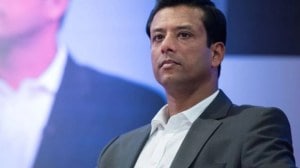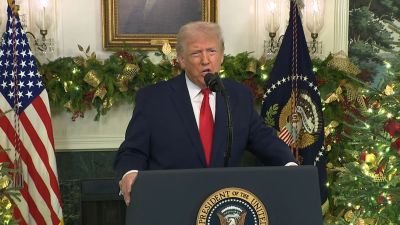Reddy was arrested in the case on November 10, 2022, and on May 29, 2023, a special court in Delhi, then presided over by Special Judge M K Nagpal, allowed Reddy to turn approver and granted him pardon.

On March 19 this year, Nagpal was transferred and, a day later, the case was taken over by Special Judge Kaveri Baweja.
Court records show that as recently as January this year, six months after he turned approver and three months before Kejriwal’s arrest, the ED questioned the approver’s intentions. The agency expressed “apprehensions” that Reddy would not return to “support” its case if he was allowed to travel overseas.
The ED made these submissions to the special court to the application filed by Reddy on December 22, 2023, where it opposed his plea seeking permission to travel abroad. It argued that if Reddy was permitted, “it may adversely affect the progress” of the investigation.
To strengthen its case, the ED submitted documents to show that even after the pardon, Reddy “failed to attend” the ongoing investigation and ignored summons sent to him via email.
Reddy had moved a plea to let him travel to France and Switzerland for 21 days (January 10 to January 31, 2024), saying the president of his firm’s Europe wing had, in an email dated December 19, 2023, highlighted issues that required his presence. And that he was needed to attend global customer conferences in these two countries as well.
Story continues below this ad
Opposing Reddy’s plea, the ED argued that as an approver, Reddy’s presence may be required at any time in the investigation of the excise case which, it said, was at a crucial stage.
“It is argued that if the Applicant (Reddy) is permitted to travel abroad during the above said period, it may adversely affect the progress of ongoing further investigation. Apprehensions have also been expressed that the applicant may not return back to India at all to support the case of prosecution and to keep the conditions of tender of pardon and thus, his absence from trial will seriously affect the prosecution case against the accused persons who have been or would be put on trial and will prejudice the interests of prosecution,” the court said on January 5 while recording the ED’s submissions.
The court also noted that the ED had filed additional documents showing that after the grant of pardon, Reddy “failed to attend the ongoing further investigation of this case in response to the summons sent to him through emails and some information sought by the IO (investigating officer) from him is also yet to be furnished.”
However, the court allowed Reddy’s plea to travel and broadly made three observations.
Story continues below this ad
First, it said Reddy was granted pardon “only because his above plea was supported by the prosecution (ED)”. And the ED had specifically submitted that Reddy had “cooperated in subsequent investigation and had disclosed certain facts, which were crucial and relevant for the ongoing further investigation”.
The court put on record that after the pardon, Reddy had not attended the office of ED in response to “certain summons” but that he “attended investigation on the next dates for which he was summoned again”. The court flagged that some information “still pending from the side of applicant (Reddy)”, isn’t about the alleged role of other suspects but “pertains to assets of the applicant (Reddy) himself”.
Second, the court observed that the right to travel abroad is a valuable right, flowing from the “fundamental right to life and liberty as guaranteed by Article 21 of the Constitution of India”. Third, the court pointed to the Delhi High Court order which, while granting bail to Reddy, noted that he was not a flight risk.
Significantly, in its reply opposing Reddy’s travel plea, the ED referred to his alleged role in the offence — despite Reddy turning an approver. The court, in fact, in its order, specifically noted “submissions” made in the ED’s reply regarding “the role played” by Reddy in the commission of the alleged offence.
Story continues below this ad
The court, however, observed that Reddy had got a conditional pardon by the court for “making a full and true disclosure of all the incriminating facts and circumstances relating to commission of the alleged offence of the present case”. And that if he fails to keep the conditions of the pardon, “he is liable to be tried as an accused not only for the above said offence of money laundering, but also for the offence of giving false evidence.”
Incidentally, records released by the Election Commission – after orders from the Supreme Court – show that five days after Reddy’s arrest, on November 15, 2022, Aurobindo Pharma purchased electoral bonds worth Rs 5 crore. Six days later, the BJP encashed these bonds.
Months after Reddy recorded a statement in the case, now cited by the ED as crucial evidence post the arrest of Kejriwal, Aurobindo Pharma purchased bonds worth Rs 25 crore, which were encashed by the BJP on November 17, 2023.
In the excise case, the ED has alleged that Vijay Nair, the former AAP communication in-charge and former CEO of Only Much Louder, an entertainment and event management company, received kickbacks on behalf of Kejriwal and AAP to the tune of Rs 100 crore from South Group.
Story continues below this ad
It claimed that the South Group mainly comprised Sarath Reddy, and BRS leader and former Telangana Chief Minister K Chandrashekar Rao’s daughter K Kavitha, apart from others.
The ED had also claimed that Hyderabad-based businessman Arun Pillai, a close aide of Kavitha and an alleged frontman of the South Group, paid kickbacks amounting to about Rs 100 crore to AAP to gain a larger share of the market in the national capital under the excise policy for 2020-21. It is further alleged that proceeds of crime of about Rs 45 crore, which was part of bribes received from the South Group, were used in the election campaign of AAP in Goa in 2021-22.
In its plea seeking Kejriwal’s custody, the ED specifically cited Reddy’s April 2023 statement to show Kejriwal’s meeting with South Group. “…as we were investing in Delhi, I expressed my desire to Arun Pillai to meet the top bosses i.e. Arvind Kejriwal and Manish Sisodia. Arun Pillai assured me to get this done through the help of Vijay Nair. He coordinated with Vijay Nair and informed me that he has taken an appointment from them and accordingly I came to Delhi,” Reddy told the ED.
“I state that this was monsoon time so it must be July-August, 2021. I was asked not to carry any mobile and not to bring anyone with me. As decided a black colour SUV picked me up from near the Oberoi Hotel and took me to a house which seemed like a Govt Bungalow. Later, I asked Vijay whose house it was, then he said that he is residing in that house and it was close to the CM house. There, I met Kejriwal for a brief meeting of 10 minutes or so. Vijay was also present in that meeting,” Reddy told the ED.
Story continues below this ad
Reddy also claimed he was assured by Kejriwal that Nair could be trusted and was capable of handling any issue. “In this meeting, Kejriwal told me to trust his guy Vijay and that he was very smart and will figure small or big issues if any arise. He spoke about the new policy which had come and that it will be win-win for all. Rest was (a) courtesy discussion on my business. The same car dropped me back near the Oberoi Hotel,” Reddy told the ED in his statement.









